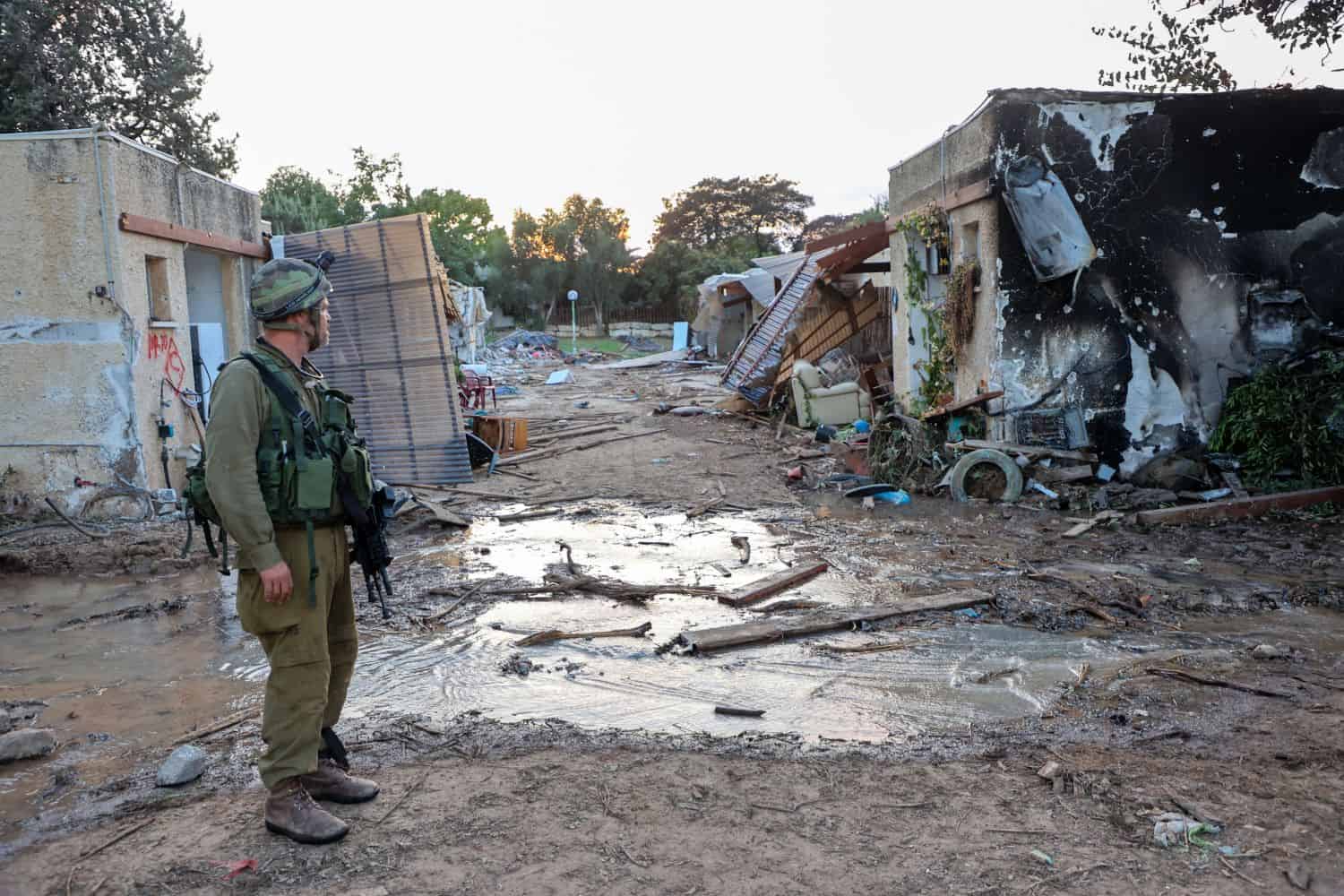South Africa could have provided a blueprint for Israel and Palestine to live peacefully together, instead if fuels the naysayers.

Israeli troops search the scene of a Palestinian militant attack in the Israeli kibbutz of Kfar Aza on the border with the Gaza Strip on 11 October 2023. Picture: GIL COHEN-MAGEN / AFP
Understanding the Palestine-Israel conflict requires a knowledge bank that very few people can possibly hold. Naturally, many people would say it’s a simple matter and reduce it to a few selective points and that’s been the cause of most conflict.
What we can say, for free, is that the context of this conflict would probably require letting go of the past before finding some kind of solution. Good luck with that. Even if the stars did align and a solution was in sight, how appealing would it be?
Any person or group wielding power would rarely find it appealing to let go of it, least of all if they believe that they’re yielding it to a lesser deserving group. South Africa is a great case in point. Things have not been great on several fronts since 1994. That’s not to say that pre-1994 was better. This is not a simple matter of comparison but rather how the results of mixing communities may influence the desire of future communities to mix.
Even if every moral dictate flows towards living together, the practicalities around it are enough to put even the most adamant characters off. Add to that a bunch of negative outcomes and the case study of South Africa, it would be difficult for most to get excited about any form of peace that doesn’t result in some form of political limitations on the “others”. After all, why would one want to dilute their existing political agency knowing that doing so is going to make their lives less enjoyable?
ALSO READ: ANC’s border plan makes SA look pathetic and doesn’t solve the issue
Considering all this, it would still be incredibly wrong to make the selfish argument that we shouldn’t do things that are morally right because people will be inconvenienced to the benefit of others. Guess what though! People are pretty selfish beings and especially when you group homogenously and have manners of protecting group think and group interests, you’re going to have a difficult time even starting the moral conversation.
That’s why we have issues with the flow of the Nile. It’s why there are two Irelands. It’s why almost every global conflict has ever erupted. And for some reason, despite all this historical context, we expect two sets of religiously passionate people to accept a moral perspective in the pursuit of peace even when neither will get anything close to what they want.
It would be great if South Africa set an example of how heterogeneous society could be an awesome and effective country. The issues facing South Africa are not really caused by our heterogenous nature but the outside world doesn’t care about any of that. They only see the product and it looks like it hasn’t worked. So why would Israel or Palestine feel compelled to emulate it.
Politicians play with narratives because they’re easy to manipulate. Obviously, by extension, presenting South Africa as a failed state and knowing its history is an easy way for anybody on any side of the Middle East divide to dismiss the idea of living together as non-functional.
ALSO READ: Our heritage is reduced to a braai because we have few things left to celebrate
Had South Africa got its stuff together and built a growing and inclusive economy, maintained standards of living on the higher end and brought the rest of the country up to it and really had a good story to tell, we’d be the perfect answer to disarm the nay-sayers. Right now, all we do is empower them.
We were in the best position to make living together look like a good idea. It’s still obviously a good idea, even when it doesn’t look like it. It’s just that nobody tends to start at the unattractive looking option. We could have made it look far more appealing and that could have been the difference.
Download our app